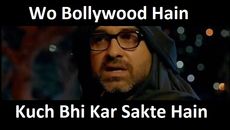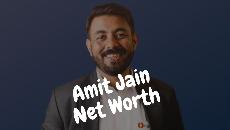Advertisement:
We Are In 2019 Now But Still, People Have To Face 'Shaming', Which Is Intolerant & Needs To Be Stopped
Date: 2019-03-03 17:00:37
'Shame on Shaming'
In our day to day life, we encounter multiple casual slangs and phrases which are intended to shame an intended target. It is not healthy for victims mentally. India has for long ignored the direness of psychological disorders and effects and is, unfortunately, still struggling with it. People should be more aware of the psychological damage their words have the potential of doing. The carelessness with which words are used has increased considerably with the reliance on social media. With each comment or post, it is very easy to create a virtual mob which targets a single person as a source of jokes which is another form of shaming. People have never observed the severe impact which it creates on the victim's mind.

Also Read: Gifts you can give to your boyfriend this christmas!!
Also Read: 20+ Blouse Back Design | Latest Blouse Designs Images.
Also Read: 10 Best Ideas To Impress Guest At Wedding.
Also Read: 8 Things We Can Copy From Indian Celebrity Weddings.
Advertisement:
The reason shaming is tolerated at such a large rate is also because most people don't understand what categorizes as shaming and what doesn't. Listed below are some forms of shaming, which should be actively discouraged:
1. Body Shaming-
In India, body shaming is very common to both the genders but more so to girls. Maintaining a fair skin color, having voluminous black hair, working for the perfect physique and demands of many other factors often leads to body shaming.

2. Mom Shaming-
Women everywhere have fought for their rights, but it's still an on-going struggle. Working women and non-working women are both criticized for not providing their child with the ideal motherhood.

Also Read: 'New Year, New Me' Outfits You Can Try in 2024.
Also Read: What Will Be Your Relationship Status In 2025? Take This Quiz.
Also Read: 18+ Funny Marriage Quotes For The Newlyweds.
Advertisement:
3. Gender Shaming-
India has strict gender roles and anyone who doesn't fit into them is highly criticized. Girls are supposed to be feminine and not laugh out loud while men are supposed to be masculine and can't wear nail paints.

4. Slut Shaming-
Usually targeted at women, this shaming consists of critiquing their clothes and dressing sense. It is often categorized as 'too exposing' or 'too inviting' or 'attention seeking behavior'.

5. Mental Illness Shaming-
It is a pity that psychological disorders are so common and yet people know so little about them. People suffering from down syndrome, autism, schizophrenia, depression, bipolar disorder and so on are often mocked for their mental state.

6. Sexuality Shaming-
Even after the amendment of Article 377 of the constitution, sexual slurs often seep their way into the common language. The terms gay and lesbian are used more as an insult than identity.

Also Read: 70+ Unique Wedding Hashtags We Made Only For Your Grand Wedding.
Advertisement:
7. Caste/Religion shaming-
India is a secular country in terms of both religion and caste. But despite living together for so many years, people stick with their own community as pass racist comments and mock others on the basis of their caste.

8. Victim shaming-
Whenever an abuse victim comes out to share their story, they immediately blamed for their situation. People who have faced rape, assault, abuse etc. are dissed for seeking attention or neglected by the masses.

We have to remember that what we consider shameful is probably not considered so by people of some other time or some other culture. The 21st Century, in particular, is known for breaking taboos, there was the sexual revolution to normalize sex, and feminists are still struggling to put an end to menstrual cycle shaming, body shaming or slut-shaming and, so on. With power comes responsibility, if one has the power to speak his or her mind they ought to use it judiciously and reasonably so as to not hurt someone's sentiments.
Advertisement:
Trending Now.
...Play Quiz. →
Trending Memes. →
Latest Stories.
©To Clap2Ram Media (TabloidXO™)
Trending Now
Advertisement:



































